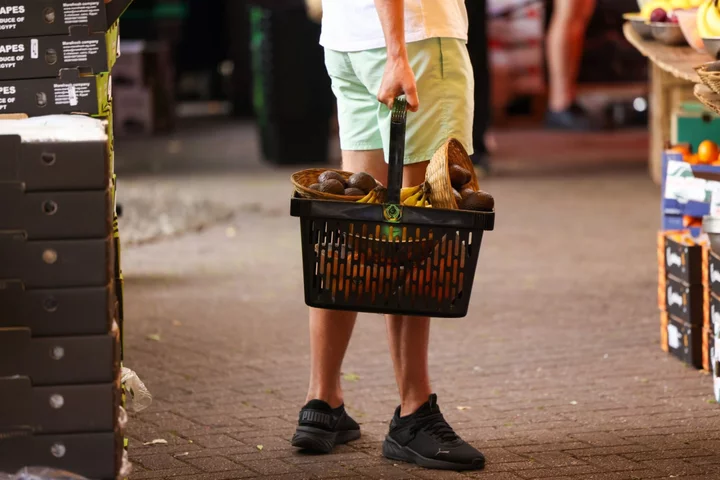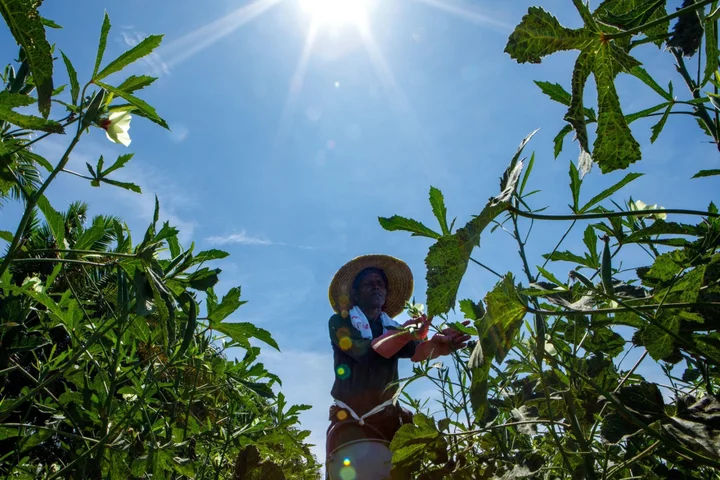Grocery price inflation has fallen sharply, another sign that Britain’s cost-of-living crisis is gradually easing for consumers.
Annual price growth dropped 2.2 percentage points to 12.7% in the four weeks to Aug. 6, the second sharpest monthly fall since market research firm Kantar started monitoring prices in 2008. Grocery inflation has fallen for five months in a row from a record high reached in March.
The data will be welcomed by economists as Britain’s overall rate of inflation has remained stubbornly high this year despite rising borrowing costs. The Bank of England raised interest rates to a new 15-year high earlier this month.
Still, food inflation is more than 10%.
Read more: UK Wages Growing at Record Pace Add to BOE’s Inflation Concerns
“Prices are still up year-on-year across every supermarket shelf, but consumers will have been relieved to see the cost of some staple goods starting to edge down compared with earlier in 2023,” said Fraser McKevitt, head of retail and consumer insight at Kantar.
Among basic items that have become cheaper, four pints of milk cost £1.50 ($1.90) last month, down from £1.69 in March. A liter of sunflower oil costs £2.19, down 22 pence, according to Kantar.
Shoppers are still frequenting discount grocers, with Aldi’s sales growth exceeding 21%, the fastest pace among supermarkets. Lidl’s sales rose by almost 20%. Revenue at Waitrose and Co-op only rose by 4.4% and 3.4% respectively.
In a reflection of the recent cold weather, shoppers have been buying traditional “winter-warmer” foods such as soup and meat for roasting. Ice cream sales volumes are down 30%.









